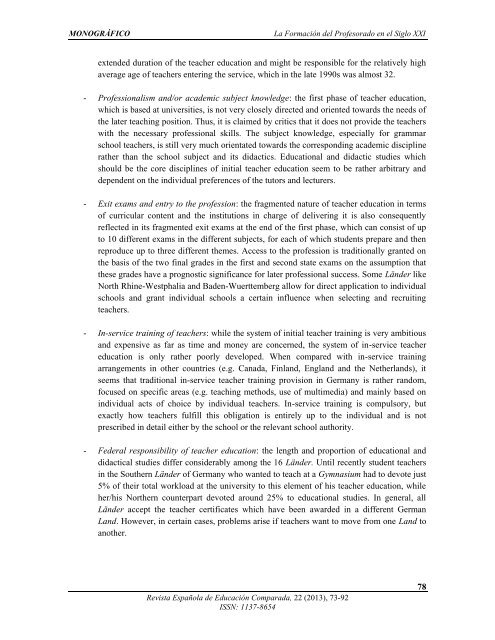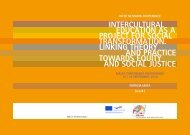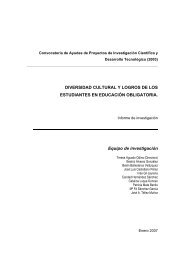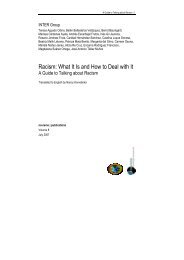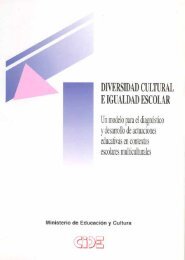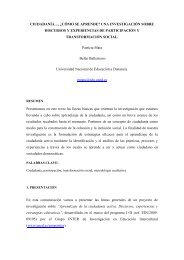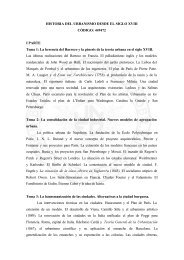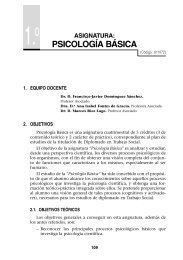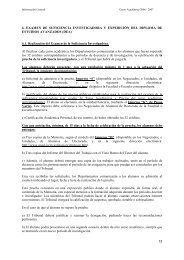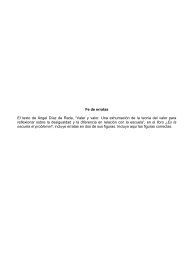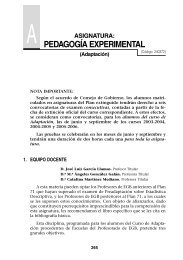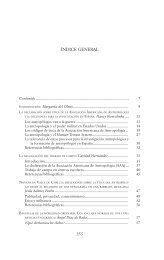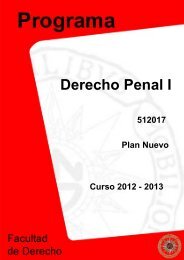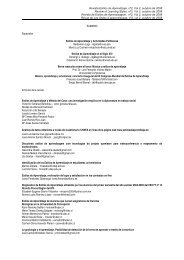'NEW' SOLUTIONS TO 'OLD' PROBLEMS? RECENT ... - UNED
'NEW' SOLUTIONS TO 'OLD' PROBLEMS? RECENT ... - UNED
'NEW' SOLUTIONS TO 'OLD' PROBLEMS? RECENT ... - UNED
You also want an ePaper? Increase the reach of your titles
YUMPU automatically turns print PDFs into web optimized ePapers that Google loves.
MONOGRÁFICO<br />
La Formación del Profesorado en el Siglo XXI<br />
extended duration of the teacher education and might be responsible for the relatively high<br />
average age of teachers entering the service, which in the late 1990s was almost 32.<br />
- Professionalism and/or academic subject knowledge: the first phase of teacher education,<br />
which is based at universities, is not very closely directed and oriented towards the needs of<br />
the later teaching position. Thus, it is claimed by critics that it does not provide the teachers<br />
with the necessary professional skills. The subject knowledge, especially for grammar<br />
school teachers, is still very much orientated towards the corresponding academic discipline<br />
rather than the school subject and its didactics. Educational and didactic studies which<br />
should be the core disciplines of initial teacher education seem to be rather arbitrary and<br />
dependent on the individual preferences of the tutors and lecturers.<br />
- Exit exams and entry to the profession: the fragmented nature of teacher education in terms<br />
of curricular content and the institutions in charge of delivering it is also consequently<br />
reflected in its fragmented exit exams at the end of the first phase, which can consist of up<br />
to 10 different exams in the different subjects, for each of which students prepare and then<br />
reproduce up to three different themes. Access to the profession is traditionally granted on<br />
the basis of the two final grades in the first and second state exams on the assumption that<br />
these grades have a prognostic significance for later professional success. Some Länder like<br />
North Rhine-Westphalia and Baden-Wuerttemberg allow for direct application to individual<br />
schools and grant individual schools a certain influence when selecting and recruiting<br />
teachers.<br />
- In-service training of teachers: while the system of initial teacher training is very ambitious<br />
and expensive as far as time and money are concerned, the system of in-service teacher<br />
education is only rather poorly developed. When compared with in-service training<br />
arrangements in other countries (e.g. Canada, Finland, England and the Netherlands), it<br />
seems that traditional in-service teacher training provision in Germany is rather random,<br />
focused on specific areas (e.g. teaching methods, use of multimedia) and mainly based on<br />
individual acts of choice by individual teachers. In-service training is compulsory, but<br />
exactly how teachers fulfill this obligation is entirely up to the individual and is not<br />
prescribed in detail either by the school or the relevant school authority.<br />
- Federal responsibility of teacher education: the length and proportion of educational and<br />
didactical studies differ considerably among the 16 Länder. Until recently student teachers<br />
in the Southern Länder of Germany who wanted to teach at a Gymnasium had to devote just<br />
5% of their total workload at the university to this element of his teacher education, while<br />
her/his Northern counterpart devoted around 25% to educational studies. In general, all<br />
Länder accept the teacher certificates which have been awarded in a different German<br />
Land. However, in certain cases, problems arise if teachers want to move from one Land to<br />
another.<br />
Revista Española de Educación Comparada, 22 (2013), 73-92<br />
ISSN: 1137-8654<br />
78


